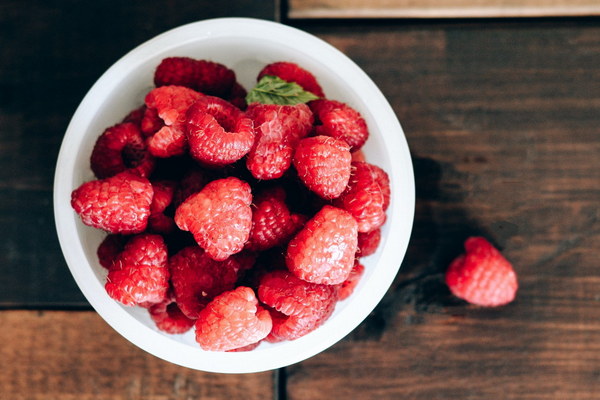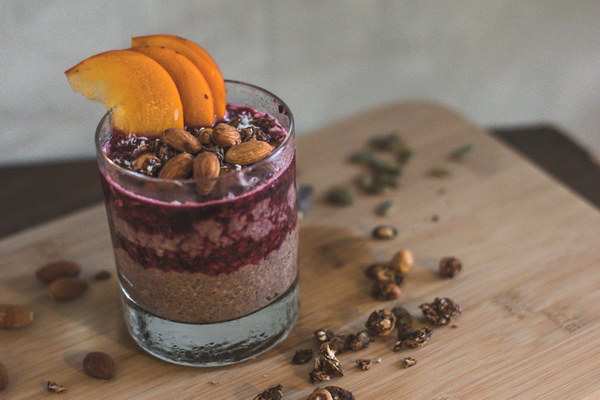Nourishing Yin Deficiency and Phlegm Dampness A Comprehensive Dietary Approach
Yin deficiency and phlegm dampness are two common imbalances in traditional Chinese medicine (TCM). These imbalances can lead to a variety of health issues, including fatigue, weight gain, and digestive problems. To address these imbalances, TCM suggests a dietary approach that focuses on nourishing the yin and draining phlegm dampness. In this article, we will explore the concept of yin deficiency and phlegm dampness, and provide a comprehensive dietary approach to alleviate these conditions.
Understanding Yin Deficiency and Phlegm Dampness
Yin deficiency refers to a state where the body's yin energy is depleted, leading to a variety of symptoms such as heat, dryness, and weakness. Phlegm dampness, on the other hand, is a condition where excess moisture accumulates in the body, causing symptoms such as fatigue, weight gain, and digestive issues.
In TCM, yin and yang are the two fundamental forces that regulate the body's functions. Yin represents the cooling, moist, and nourishing aspects of the body, while yang represents the warming, energetic, and active aspects. When yin is deficient, the body's cooling and moistening properties are reduced, leading to various symptoms.
Similarly, phlegm dampness occurs when the body's metabolism is impaired, causing excess moisture to accumulate in the body. This can lead to the formation of phlegm, which can obstruct the body's channels, causing a range of symptoms.
Dietary Approach to Nourish Yin and Drain Phlegm Dampness
1. Increase Intake of Yin-Nourishing Foods
To address yin deficiency, it is essential to incorporate yin-nourishing foods into your diet. These foods are typically cooling, moistening, and nourishing. Some examples include:
- Goji berries: Rich in antioxidants, goji berries help nourish the liver and kidneys, promoting yin balance.

- Almonds: Almonds are a great source of healthy fats and protein, which can help nourish the yin and improve energy levels.
- Tofu: Made from soybeans, tofu is a versatile and nourishing food that can help balance yin and support kidney function.
- Leafy greens: Foods like spinach, kale, and Swiss chard are excellent sources of vitamins and minerals, which can help nourish the body and promote yin balance.
2. Reduce Intake of Phlegm-Generating Foods
To address phlegm dampness, it is crucial to avoid or minimize the consumption of foods that contribute to the formation of phlegm. Some examples include:
- Dairy products: Milk, cheese, and other dairy products can exacerbate phlegm dampness.
- Cold and raw foods: Foods that are cold or raw can impair the digestion and contribute to the formation of phlegm.
- Excessive sugar and refined carbohydrates: These foods can disrupt the body's metabolism, leading to the accumulation of phlegm.
3. Incorporate Herbs and Spices
Herbs and spices can be a powerful addition to your diet when addressing yin deficiency and phlegm dampness. Some examples include:
- Ginger: Known for its warming properties, ginger can help drain phlegm and improve digestion.
- Licorice root: Licorice root is a yin-nourishing herb that can help balance the body's fluids and support kidney function.
- Astragalus: This herb is known for its immune-boosting properties and can help support overall health.
Conclusion
Incorporating a yin-nourishing and phlegm-draining dietary approach can help alleviate the symptoms of yin deficiency and phlegm dampness. By focusing on yin-nourishing foods, reducing phlegm-generating foods, and incorporating herbs and spices, you can promote a healthier and more balanced body. Remember to consult with a healthcare professional or a TCM practitioner before making significant changes to your diet.









